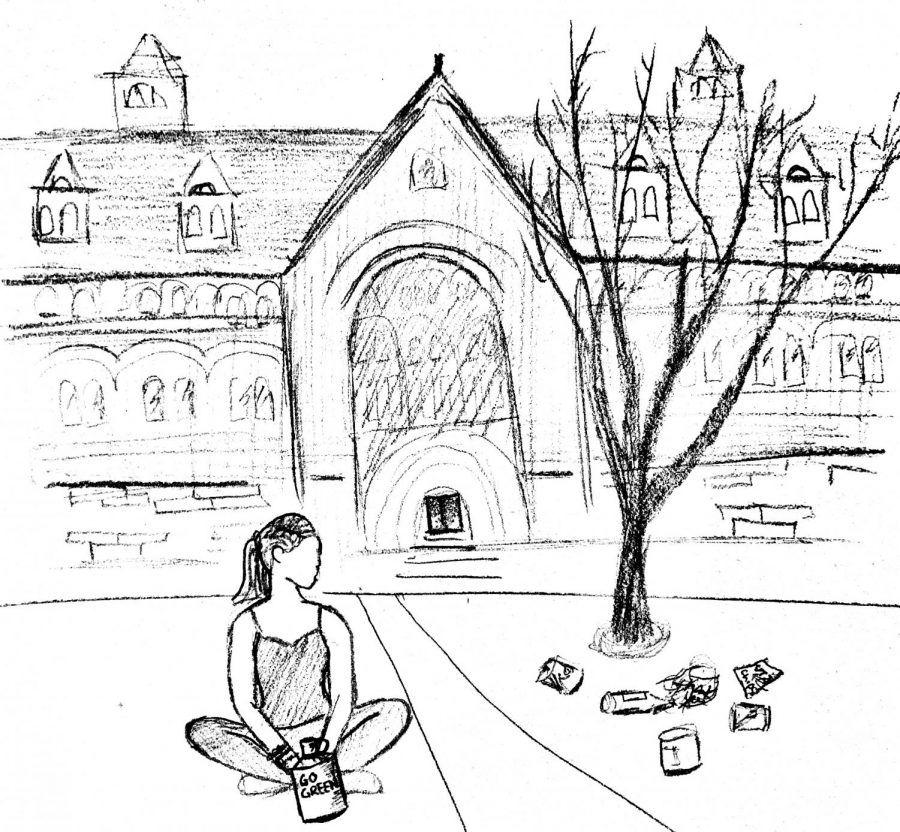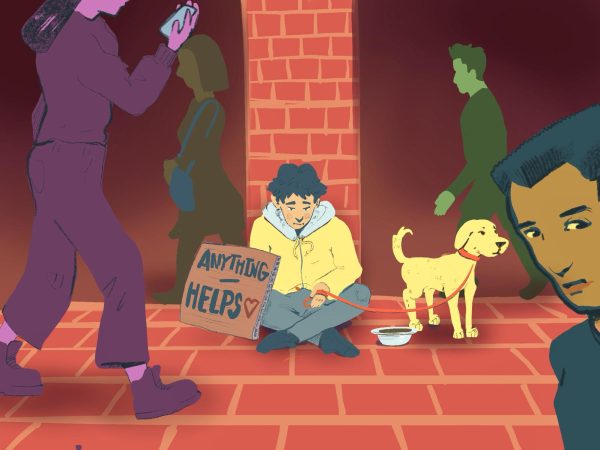Spread environmentalism on campus
May 5, 2019
As conscious newsreaders and tree-huggers UVM students are some of the most environmentally-friendly in the country. Our everyday habits are notably green, and we both boast and joke about how UVM is one of the most compost-friendly campuses around.
But how do we spread our impact? How do we make up for the communities that aren’t as environmentally-conscious as the UVM community and the greater community of Burlington?
How to halt climate change: The solution is far more abstract than just altering segments of a daily routine. In order to create lasting change that will help our earth survive, it’s vital that we dig deeper.
We need to talk about it, we need to write about it and we need to be angry about it.
Nalgenes encased in stickers and Hydroflasks of every color of the rainbow sit in every lecture hall, every dorm and every backpack on this campus.
Burlington residents ride bikes and buses in favor of driving solo. On-campus retailers give discounts to customers refilling a reusable coffee cup from home instead of drinking out of a single-use cup. Many of us adopt diets that exclude meat or any animal products.
Matt Dugan, a professor in the CDAE department feels strongly that the UVM student body is friendly to the environment, but could be doing more.
“It’s the gap between what we know and what we’re doing,” he said, emphasizing that awareness is the real key to revising our environmental habits.
Our habits are green, our eating is green, even our buildings are green. There is a serious concentration of people striving to go green here in Burlington. This much is clear.
But in my eyes, it’s not as simple and straightforward as drinking out of a reusable water bottle or bringing a cloth tote to the grocery store. While these habits are incredibly important and should be maintained, the solution to climate change can’t possibly be so easy.
While eating vegan meals and cutting down our shower times, it’s most important that we talk about climate change, even after we revise our habits to be greener.
Just talking about environmental issues — even with people who you believe are already woke — can spread awareness, and the potential results should not be underestimated.
As of last year, only about 63 percent of people believed that global warming was caused by humans and while this is a high number, it means that there are a great deal of people out there littering, not recycling, and believing that they have no impact on the environment. And, to make things worse, less than half of Americans worry seriously about global warming.
We must write about environmental issues and how to fix them, whether this writing is on Twitter or in an academic journal. Statistics like these (and thousands of others) need to be shared to reveal reality; the facts behind climate change.
Furthermore, it’s crucial now more than ever to be angry and unsatisfied. Being angry will motivate us and give us energy, not only to spread awareness to others, but to make widespread and deep changes in policy on both local levels and beyond.
















![Can’t buy me [self] love](https://vtcynic.com/wp-content/uploads/2024/04/self-care-FINAL-600x398.jpg)
